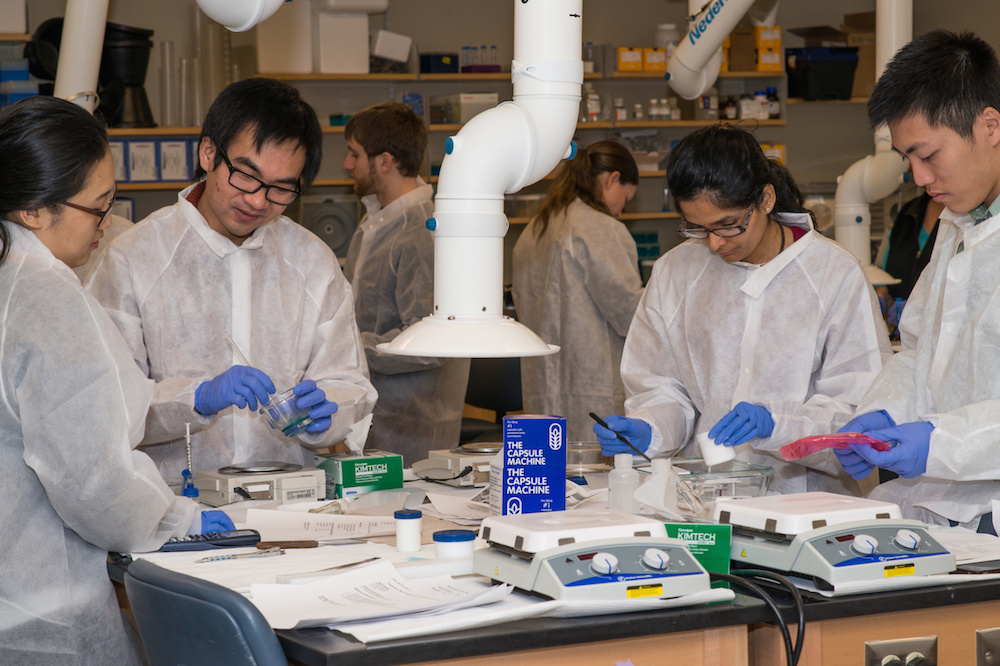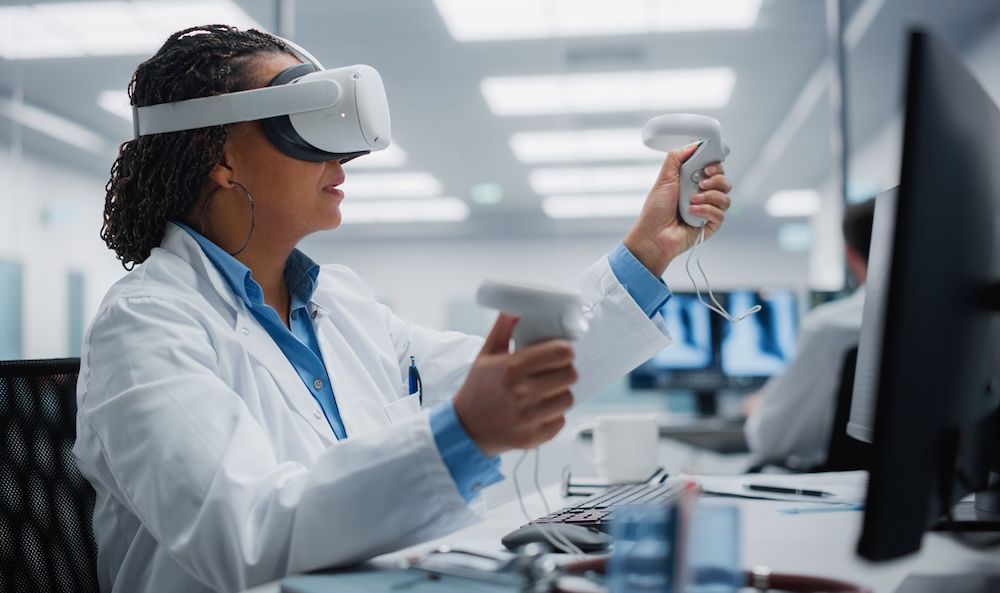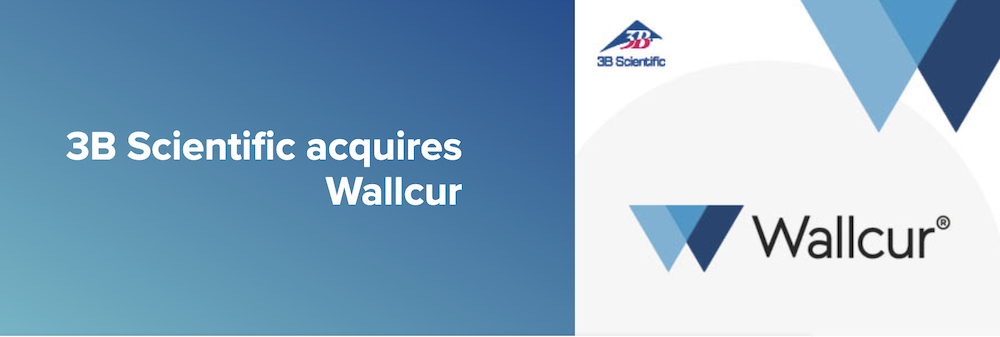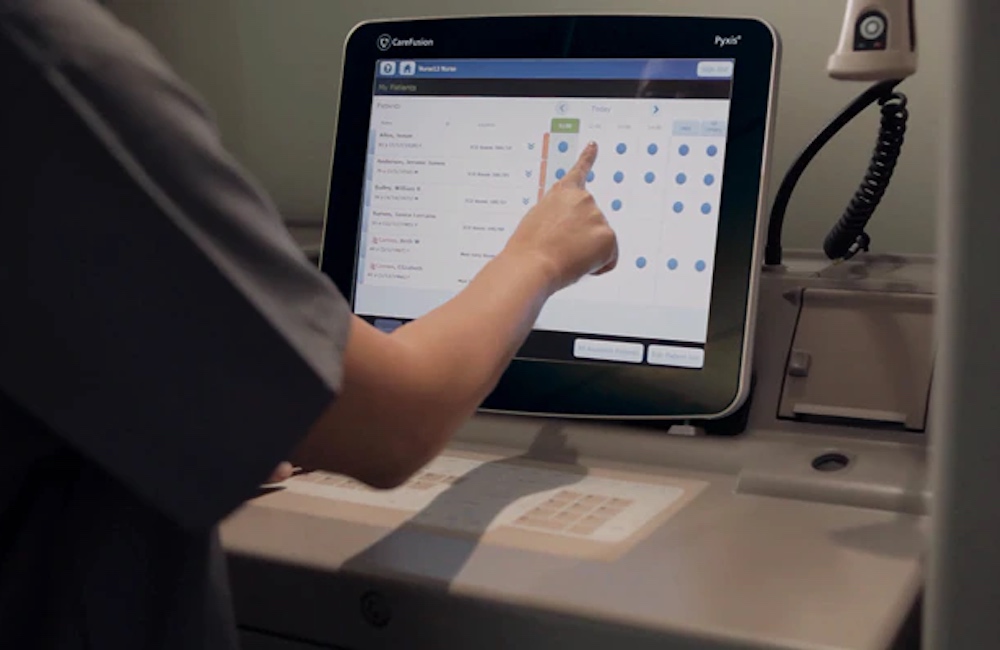In a recent article entitled “Simulation-based training: applications in clinical pharmacy” published in the journal Clinical Pharmacist (September 2018, Vol 10, No 9), Michael Lloyd, Simon Watmough, and Nicholas Bennett cover the use of Simulation-based Training (SBT) in the context of Clinical pharmacy training. They share how SBT is an innovative training technique that has been increasingly used in healthcare over the last few decades, along with a variety of simulation technologies are available to support skill development, including patient simulations, computer-based simulations and virtual reality simulations. Furthermore, they also show how SBT can be used to provide a safe environment for pharmacists to develop their professional skills and can help develop technical and non-technical skills including communication, team working, decision making and task prioritization, along with multi-professional team training and patient safety. Today we cover a brief recap of the article, which is freely available through the link below.
Introduction to Simulation-Based Training
The role of the pharmacist in UK hospital settings has changed significantly over the past 15 years, from a medication-centred to a more patient-centred role. Examples of this evolution and development include enhanced roles in medicines reconciliation, attendance on ward rounds, leading outpatient clinics, and development of clinical speciality and prescribing roles.
With the evolving role of pharmacists and the growing complexity of healthcare, there is a need for interventions and innovations to enhance both individual task and team performance. Simulation-based training (SBT) is an educational platform with potential in this area. This article outlines its applications in pharmacy and how it can support the skill acquisition and development of pharmacists.
SBT for Pharmacists
Potential applications of SBT to support development of pharmacists’ technical, cognitive and non-technical skills are outlined in a table on the publication page, which we have summarized here:
- Medication history taking
- Perform an accurate medication history;
- Outline and identify potential errors associated with each source of history;
- Communicate and reconcile any discrepencies with a prescriber
- Interprofessional communication
- Non-technical skill development, including development of situational awareness, communication and team-working, and decision making
- Medication review/prescribing error resolution
- Review medication and construct care plan to optimise pharmaceutical care;
- Identify and resolve a prescribing error;
- Provide adequate feedback to prescriber;
- Raised awareness of medication error causation
- High-risk or routine clinical scenario
- Identify medication-induced cause of complaint;
- Optimise pharmaceutical care of patient;
- Obtain relevant information to inform clinical decisions;
- Communicate effectively with team members
- Medicines information (including on-call)
- Obtain and utilise relevant information to answer query;
- Communicate effectively by phone;
- Document any communication effectively
- Medication safety
- Raised awareness of medication error causation;
- Raised situational awareness to recognise potential error-provoking conditions
The literature supporting the use of high-fidelity SBT for pharmacy in the UK is limited, with the majority of evidence emerging from the United States. This could be influenced by the perceived traditional supply role of a pharmacist having less direct patient contact compared with nurses and doctors. The role of pharmacists in the UK has evolved considerably in recent years towards a greater patient-centred role and, therefore, demands enhanced clinical skills. However, as undergraduate pharmacy is funded differently to medicine and nursing programmes, the opportunities for clinical placements for pharmacy students can be limited. Such limited exposure to clinical practice can create a mismatch between student expectations and the reality of clinical practice, with pharmacists requiring skills of a different order than can currently be achieved at registration. SBT could be used to both supplement these experiences and support development of clinical skills as part of any ongoing postgraduate training, helping to better prepare and support pharmacists in clinical practice.
High-fidelity SBT can provide a safe and controlled learning environment for pharmacists to apply their knowledge and develop their professional skills. SBT is well received by pharmacy students and has been shown to improve confidence, enhance learning and improve test scores in the management of clinical conditions, medication administration or drug calculations. Recently, the use of a computer-based simulation was reported to support self-directed learning and develop decision-making skills of pharmacy students in an oncology pharmacotherapeutics programme. Elsewhere, SBT has been shown to enhance pharmacy student performance in monitoring drug treatment and clinical skills such as blood pressure measurement. In emergency situations, SBT has been reported to enhance problem-solving skills and understanding of the role of pharmacists in managing these conditions, although benefits also extend to routine clinical scenarios.
SBT has also been shown to enhance pharmacist communication, critical thinking and team-working skills, with teams that work effectively providing higher quality care and patient safety. Healthcare students, such as pharmacy students, are trained in profession-specific ways, yet are required to work in clinical settings as members of interprofessional teams. Pharmacists routinely need to collaborate with doctors to resolve and optimise prescribing outcomes. Effective communication skills are essential performance standards for UK pharmacists, yet poor communication between healthcare professionals, including pharmacists and doctors, is considered a leading contributing factor of prescribing error.
While SBT is used within schools of pharmacy for dispensing, patient counselling, teaching of therapeutics and assessments in objective structured clinical examination, there is wider potential for clinical pharmacy to meet the evolving needs of the workforce. It could be used as a modality for training and assessment of clinical skills, application of pharmaceutical care, identification of medication errors, medicines reconciliation and prescribing tasks. As a technology, SBT has enhanced medical students’ knowledge and comfort in obtaining a medication history, and similar benefits might be expected for pharmacists and pharmacy technicians who undertake this role in UK hospital settings.
This training can enhance the self-reported preparedness of pharmacists for high-stress clinical scenarios while on-call, including management of sepsis, stroke, epilepsy and bleeding. This demonstrates its potential application for enhancing knowledge and awareness of both frequent and rare clinical situations, or even to support pharmacists as they rotate between clinical areas and pharmacy placements, such as dispensary and medicines information.
Challenges and Limitations of SBT
SBT is not without limitations. It should be emphasised that it is a supplementary experience and not a replacement for clinical experience. More complex simulators and mannequins require tailored simulation facilities, technologies and resources. The cost of more sophisticated high-fidelity simulators can be considerable, with further associated costs for on-going maintenance and ancillary equipment or materials. Space to house a simulation suite is required, while staff skilled in the programming and use of the simulator, and assessment and debriefing of participants is also required, presenting limitations that are likely to be problematic for many pharmacy departments and organisations. The place and role of SBT in any clinical pharmacy curricula needs defining and should be aligned with relevant competencies, while SBT programmes will need further research and validation of their impact on both educational and clinical outcomes.
Such challenges will need to be overcome to enable SBT to be fully utilised in clinical pharmacy training. However, many hospitals and institutions already have access to these resources, and engagement with the dedicated clinical skills or simulation teams could foster a collaboration to support a dedicated or interprofessional SBT programme for pharmacists. Such collaboration could allow pharmacy faculties to develop and lead independently on their own SBT, creating opportunities to both drive the research agenda and contribute to the evidence base supporting SBT as a technique to help develop the skills of the pharmacy workforce.
Conclusion of SBT in Pharmacy Training
SBT is an innovative and flexible training modality that is being increasingly used within healthcare to enhance quality and support attainment of professional competence. Effective training is critical for acquisition of the diverse skills required of healthcare professionals to deliver safe, high-quality care, and SBT can help develop and assess performance. Its use within clinical pharmacy has not evolved to the same levels as in other areas of healthcare; however, it offers clear potential not only for pharmacy-specific training, but for crew resource management training for entire clinical teams — along with potential benefits for optimising both medication and patient safety. As clinical pharmacy evolves to include more patient-facing roles, educators need to embrace educational interventions and technologies that will support the acquisition and development of the skills of tomorrow’s workforce; SBT is one option that should be explored further.
Are you utilzing simulation in your Pharmacy training program? Leave us a comment below and share your successes!







